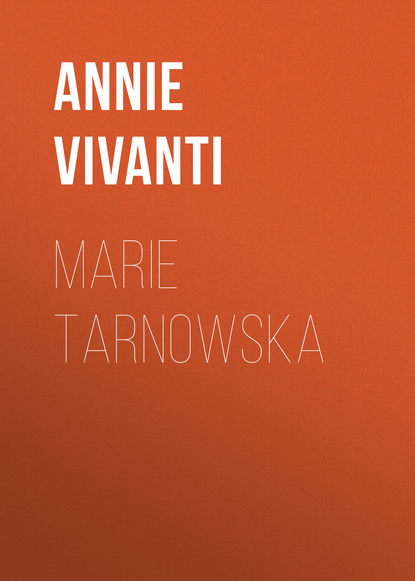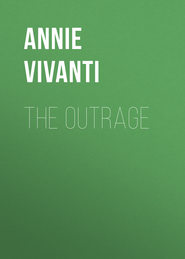По всем вопросам обращайтесь на: info@litportal.ru
(©) 2003-2024.
✖
Marie Tarnowska
Настройки чтения
Размер шрифта
Высота строк
Поля
So great became the power of this obsession over me, that no sooner did I enter a restaurant where there were people, and lights, and the music of stringed instruments, than I straightway felt as if I had lost my senses. Under the influence of such an atmosphere all my thoughts assumed disordered and extravagant forms. The tones of the violins excited and electrified me; as the bows swept the quivering strings I also quivered and vibrated, shaken with indescribable perturbation. The waves of sound seemed to envelop me in a turbid vortex of sentiment and sensibility.
Ah, if there had been more silence in my life, more shade, more seclusion! It is not within the safe walls of the home, not at one's own peaceful and inviolate hearth that perversity stirs to life and catastrophe is born.
Oh! Tania, my only daughter, if the wishes of your sorrowful mother could but reach you and her prayers for you be granted, they would encompass with shade and silence your young and virginal heart.
And I—ah, if I could but go back to the white vacant land of childhood, I would kneel down and entreat from heaven naught else but shade and silence in my life....
But in the Café Métropole the blazing lights were lit, the orchestra was swinging its unhallowed censer of waltz-music through the perfumed air and the Scorpion was sitting before me drinking his tea and laughing.
“Do you remember how much afraid you were of me at the Strelna, when I jumped from the divan and touched your shoulder? And afterwards—when you found me asleep at the bottom of the sleigh?”
Yes, I remembered.
“And now you are no longer afraid of me?”
No. Now I was no longer afraid of him.
Fate, the Fury, standing behind me, must have laughed as with her nebulous hand she covered my smiling eyes.
XXI
What charmed and delighted me most in the Scorpion was a pet phrase of his that he was constantly using: “Leave that to me!”
He said it every minute, a hundred times a day. Occasionally there might be a slight variation; he might say, “Don't trouble your head about that”; or “Never mind, I'll see to it.” But as a rule it was the brief enchanting sentence: “Leave that to me.”
I cannot possibly describe the sense of utter relief and comfort with which those few words inspired me. I felt unburdened, as it were, exonerated, set free from every responsibility, from every anxiety, almost from every thought. It was as if Prilukoff had said of my very soul, “Leave it to me,” so complete was my sense of tranquil relinquishment.
In truth I had never given much thought to the practical side of life. No sense of responsibility had ever weighed upon my narrow shoulders; there had always been so many people around me to give me advice, to direct me, to think and to act on my behalf!
When I had suddenly found myself alone in the world with Tioka and Elise I had felt more frightened and more helpless than they. But now, here once more was some one ready to direct me, ready to think and act and decide for me. Occasionally, realizing my position, I exclaimed anxiously: “Dear me, what shall I do about money?”
Prilukoff would answer briefly: “Leave that to me.”
“But how shall I pay my bills?”
“Leave your bills to me.”
“And how shall I prevent Vassili from robbing me of Tioka!”
“Don't bother about Tioka. Leave him to me.”
“And, oh dear! I wish I could be divorced from Vassili.”
“You shall be divorced; I shall see to it.”
“But what will my mother say?”
“Leave your mother to me.”
There seemed to be nothing in the world that could not be left to the omniscient and all-sufficing care of Donat Prilukoff. I was deeply moved and grateful.
“How shall I ever be able to thank you?”
“Leave the thanking to me,” said Prilukoff.
For a long time, indeed, he seemed neither to desire nor expect any gratitude. He looked after my interests, my divorce, my parents, my son, my maid, my debts, and my health. But he asked for no thanks; all he required was that I should be docile and content.
It was a period of respite. Soon I forgot that I had ever thought of him as a Scorpion or an octopus. Indeed, he was to my eyes a strange and delightful mixture of knight errant, of guardian saint, of commissionaire and hero.
I did not feel then that every favor, every counsel I asked of him, was but another link in the subtle chain that bound me to him.
Soon I was unable to do anything without asking for his opinion and his assistance. Tioka, Elise and I grew accustomed to see him arrive with his masterful air and brisk greeting every afternoon; then every morning; then every evening as well. We never went out without him; no letter was received or written without its being given to him to read.
If Tioka broke a toy, if Elise was overcharged in an account, if I received an anonymous letter, it was immediately referred to Prilukoff. He put everything into his pocket, saying: “Leave that to me.”
And, true to his word, he mended the toys, he adjusted the accounts, he discovered and punished my anonymous slanderers. He was astute, deliberate and intelligent.
I felt convinced that he was also kind and generous and good.
Who can say that in those days he was not so? The dreadful Prilukoff, assassin and blackmailer, who turned against me, livid with wrath, in the court-room at Venice, was he—could he be?—the same Prilukoff who, in those far-off days, mended little Tioka's playthings? Who was so anxious if he saw me looking pale? Of whom Elise, clasping her work-worn hands, used to say: “When he appears he seems to me like Lohengrin!”
Lohengrin! How bitterly I smile, remembering all that ensued. And yet—I cannot believe it. I cannot understand it. Which of those two beings—the maleficent demon or the chivalrous knight—was the real Prilukoff?
Perhaps, when these sinister years of prison and sorrow are past that cancel in their flight so many things, and shed light upon so many others, some day he may cross my path again. Shall I then not discern in his faded, grief-stricken face the strong and compassionate Lohengrin of long ago?…
Meanwhile I drifted on, submissive to my fate.
Only two things perturbed me. One was the fear lest Tioka should be taken from me—an anguish that was with me day and night. The other was a torturing secret, which I confided to no one. It was—how shall I say it?—my terror of closed doors!
Every time I found myself alone in front of a closed door, I did not dare to open it. I had the fixed, frightful idea that behind the door I should see—Bozevsky! I had the irremovable conviction that he was standing, motionless and expectant, behind every door that confronted me. All the doors of our apartment had to be kept wide open. If it ever happened that I found myself alone in a room of which the door was closed, instead of opening it I rang the bell, I called, I cried for help; and if it chanced that every one was out, or no one heard me, I stood riveted to the spot, rigid with fear, staring at the terrifying mystery of that closed door before me. Perchance, with a great effort of will, holding my breath while the beads of cold perspiration started on my brow, I ventured to put out my hand towards the handle—but in an instant I found myself pushing the door to again, leaning desperately with all my strength against the frail barrier which concealed—oh, I knew it did!—Bozevsky, standing upright and terrible, with the yellow gauze round his neck.
This notion, horrible as it was in the daytime, became an unbearable fear after nightfall. Tioka went upstairs to bed, accompanied by Elise, at about eight o'clock. Twice it happened that, when they were both asleep, a draught caught the open door of the drawing-room in which I was sitting, and shut it. With chattering teeth, and shivers running over me like chilly water, I remained there, motionless, through all the hours of the night, knowing that Bozevsky was there, separated from me only by that slender wooden partition.
In the morning Elise found me lying on the floor in a faint.
One day Elise was summoned to Neuchâtel. Her father was at the point of death, and wished to give his last embrace and blessing to his only daughter. It was five o'clock in the afternoon when the telegram for Elise arrived; at eight o'clock, distracted and weeping, she was in the train.
Tioka and I, who had accompanied her to the station, returned homeward feeling sad and lonely. We felt doubly lonely that day, as Donat Prilukoff had been obliged to leave Moscow on account of a lawsuit, and was not to return until the following evening.
We had, it is true, another serving-woman, a cook; but she left us every evening to go and sleep at her own home.
We entered our dark and silent apartment nervously. I hastily turned on all the lights and then carried Tioka, who was cross and already half asleep, up the inner staircase leading to our bedrooms.
I undressed him and put him to bed, tucking him up warmly and comfortably.
“Oh, dear,” he sighed, rubbing his eyes; “do you think the wolves will come and eat me if I don't say my prayers to-night?”
“No, no, dearest. I will say them for you. Go to sleep.”
Ah, if there had been more silence in my life, more shade, more seclusion! It is not within the safe walls of the home, not at one's own peaceful and inviolate hearth that perversity stirs to life and catastrophe is born.
Oh! Tania, my only daughter, if the wishes of your sorrowful mother could but reach you and her prayers for you be granted, they would encompass with shade and silence your young and virginal heart.
And I—ah, if I could but go back to the white vacant land of childhood, I would kneel down and entreat from heaven naught else but shade and silence in my life....
But in the Café Métropole the blazing lights were lit, the orchestra was swinging its unhallowed censer of waltz-music through the perfumed air and the Scorpion was sitting before me drinking his tea and laughing.
“Do you remember how much afraid you were of me at the Strelna, when I jumped from the divan and touched your shoulder? And afterwards—when you found me asleep at the bottom of the sleigh?”
Yes, I remembered.
“And now you are no longer afraid of me?”
No. Now I was no longer afraid of him.
Fate, the Fury, standing behind me, must have laughed as with her nebulous hand she covered my smiling eyes.
XXI
What charmed and delighted me most in the Scorpion was a pet phrase of his that he was constantly using: “Leave that to me!”
He said it every minute, a hundred times a day. Occasionally there might be a slight variation; he might say, “Don't trouble your head about that”; or “Never mind, I'll see to it.” But as a rule it was the brief enchanting sentence: “Leave that to me.”
I cannot possibly describe the sense of utter relief and comfort with which those few words inspired me. I felt unburdened, as it were, exonerated, set free from every responsibility, from every anxiety, almost from every thought. It was as if Prilukoff had said of my very soul, “Leave it to me,” so complete was my sense of tranquil relinquishment.
In truth I had never given much thought to the practical side of life. No sense of responsibility had ever weighed upon my narrow shoulders; there had always been so many people around me to give me advice, to direct me, to think and to act on my behalf!
When I had suddenly found myself alone in the world with Tioka and Elise I had felt more frightened and more helpless than they. But now, here once more was some one ready to direct me, ready to think and act and decide for me. Occasionally, realizing my position, I exclaimed anxiously: “Dear me, what shall I do about money?”
Prilukoff would answer briefly: “Leave that to me.”
“But how shall I pay my bills?”
“Leave your bills to me.”
“And how shall I prevent Vassili from robbing me of Tioka!”
“Don't bother about Tioka. Leave him to me.”
“And, oh dear! I wish I could be divorced from Vassili.”
“You shall be divorced; I shall see to it.”
“But what will my mother say?”
“Leave your mother to me.”
There seemed to be nothing in the world that could not be left to the omniscient and all-sufficing care of Donat Prilukoff. I was deeply moved and grateful.
“How shall I ever be able to thank you?”
“Leave the thanking to me,” said Prilukoff.
For a long time, indeed, he seemed neither to desire nor expect any gratitude. He looked after my interests, my divorce, my parents, my son, my maid, my debts, and my health. But he asked for no thanks; all he required was that I should be docile and content.
It was a period of respite. Soon I forgot that I had ever thought of him as a Scorpion or an octopus. Indeed, he was to my eyes a strange and delightful mixture of knight errant, of guardian saint, of commissionaire and hero.
I did not feel then that every favor, every counsel I asked of him, was but another link in the subtle chain that bound me to him.
Soon I was unable to do anything without asking for his opinion and his assistance. Tioka, Elise and I grew accustomed to see him arrive with his masterful air and brisk greeting every afternoon; then every morning; then every evening as well. We never went out without him; no letter was received or written without its being given to him to read.
If Tioka broke a toy, if Elise was overcharged in an account, if I received an anonymous letter, it was immediately referred to Prilukoff. He put everything into his pocket, saying: “Leave that to me.”
And, true to his word, he mended the toys, he adjusted the accounts, he discovered and punished my anonymous slanderers. He was astute, deliberate and intelligent.
I felt convinced that he was also kind and generous and good.
Who can say that in those days he was not so? The dreadful Prilukoff, assassin and blackmailer, who turned against me, livid with wrath, in the court-room at Venice, was he—could he be?—the same Prilukoff who, in those far-off days, mended little Tioka's playthings? Who was so anxious if he saw me looking pale? Of whom Elise, clasping her work-worn hands, used to say: “When he appears he seems to me like Lohengrin!”
Lohengrin! How bitterly I smile, remembering all that ensued. And yet—I cannot believe it. I cannot understand it. Which of those two beings—the maleficent demon or the chivalrous knight—was the real Prilukoff?
Perhaps, when these sinister years of prison and sorrow are past that cancel in their flight so many things, and shed light upon so many others, some day he may cross my path again. Shall I then not discern in his faded, grief-stricken face the strong and compassionate Lohengrin of long ago?…
Meanwhile I drifted on, submissive to my fate.
Only two things perturbed me. One was the fear lest Tioka should be taken from me—an anguish that was with me day and night. The other was a torturing secret, which I confided to no one. It was—how shall I say it?—my terror of closed doors!
Every time I found myself alone in front of a closed door, I did not dare to open it. I had the fixed, frightful idea that behind the door I should see—Bozevsky! I had the irremovable conviction that he was standing, motionless and expectant, behind every door that confronted me. All the doors of our apartment had to be kept wide open. If it ever happened that I found myself alone in a room of which the door was closed, instead of opening it I rang the bell, I called, I cried for help; and if it chanced that every one was out, or no one heard me, I stood riveted to the spot, rigid with fear, staring at the terrifying mystery of that closed door before me. Perchance, with a great effort of will, holding my breath while the beads of cold perspiration started on my brow, I ventured to put out my hand towards the handle—but in an instant I found myself pushing the door to again, leaning desperately with all my strength against the frail barrier which concealed—oh, I knew it did!—Bozevsky, standing upright and terrible, with the yellow gauze round his neck.
This notion, horrible as it was in the daytime, became an unbearable fear after nightfall. Tioka went upstairs to bed, accompanied by Elise, at about eight o'clock. Twice it happened that, when they were both asleep, a draught caught the open door of the drawing-room in which I was sitting, and shut it. With chattering teeth, and shivers running over me like chilly water, I remained there, motionless, through all the hours of the night, knowing that Bozevsky was there, separated from me only by that slender wooden partition.
In the morning Elise found me lying on the floor in a faint.
One day Elise was summoned to Neuchâtel. Her father was at the point of death, and wished to give his last embrace and blessing to his only daughter. It was five o'clock in the afternoon when the telegram for Elise arrived; at eight o'clock, distracted and weeping, she was in the train.
Tioka and I, who had accompanied her to the station, returned homeward feeling sad and lonely. We felt doubly lonely that day, as Donat Prilukoff had been obliged to leave Moscow on account of a lawsuit, and was not to return until the following evening.
We had, it is true, another serving-woman, a cook; but she left us every evening to go and sleep at her own home.
We entered our dark and silent apartment nervously. I hastily turned on all the lights and then carried Tioka, who was cross and already half asleep, up the inner staircase leading to our bedrooms.
I undressed him and put him to bed, tucking him up warmly and comfortably.
“Oh, dear,” he sighed, rubbing his eyes; “do you think the wolves will come and eat me if I don't say my prayers to-night?”
“No, no, dearest. I will say them for you. Go to sleep.”








